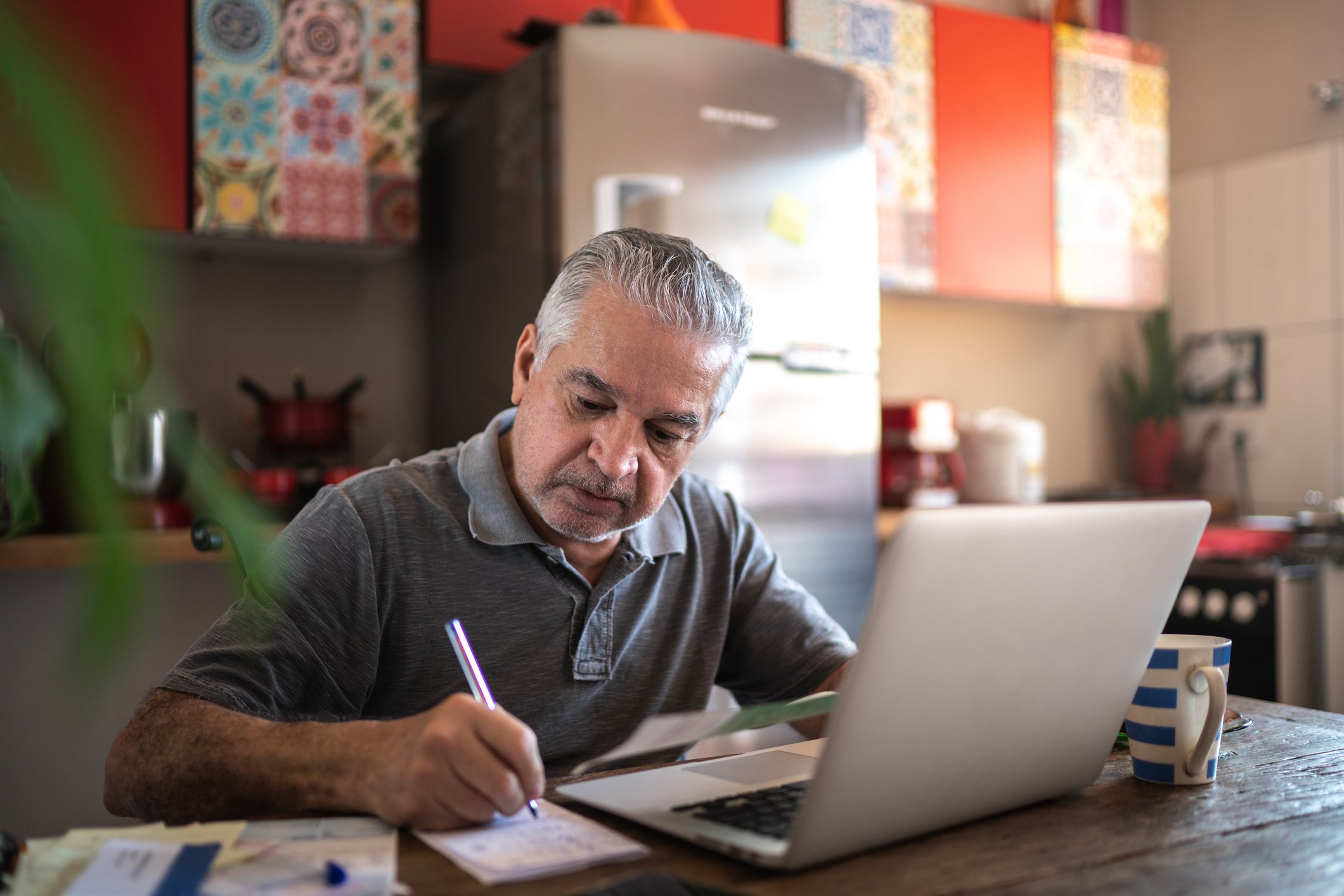Most people get concerned about money from time to time, especially during periods when unplanned expenses rear their ugly head. But there's a difference between occasionally stressing about money and being perpetually concerned about it. Unfortunately, 25% of Americans fall into the latter category by worrying about money all or most of the time, according to a recently released Gallup poll. If that sounds like you, here are a few important moves to make.
1. Start following a budget
Without a budget, you'll have no good way of knowing where your money disappears to month after month. And that can lead you to feel anxious about your personal cash flow. To remedy that, carve out a few hours to set up a budget, either by yourself if you live alone, or with the help of a spouse or partner if you share finances with somebody else.

Image source: Getty Images.
To start, comb through your bank and credit card statements to see what your recurring expenses cost you on average. Next, identify those once-a-year expenses that need to be accounted for in your budget as well, and divide their cost by 12 (for example, if you pay $120 once a year for roadside assistance, allocate $10 a month for that expense). Once you've done all this, you'll be able to see how your total spending compares with your earnings, and if the numbers don't look good, you'll have an easier time moving on to the following step.
2. Cut back on expenses
The great thing about having a budget is that it'll tell you where there's room to cut back on spending most easily. Sure, you could pack up your home and downsize to a smaller space, but that's hardly simple or convenient. On the other hand, if you see that you're currently spending $300 a month on restaurant meals and takeout, another $100 a month on rideshares, and an additional $60 a month on a gym membership, you might look at eliminating or reducing some of those expenses to free up cash. Doing so will no doubt be less complicated than uprooting your life and moving.
3. Get a side job
There may come a point when you can only cut back on so many expenses in your budget. If, after doing so, money is still a concern, your next best bet may be to boost your income by getting yourself a second job. That side gig is something you can do temporarily to build some savings, or on a long-term basis to buy yourself ongoing financial security. It can also be something you enjoy. For example, if you're an avid baker, you can sell your homemade goods at a profit. If you like animals, you can sign up to walk dogs or pet-sit on weekends. Having more income will give you more flexibility, and less to worry about.
If money concerns have been keeping you awake at night and stressing you out constantly, it's time to break the cycle. And if you don't feel you can do it alone, get help by finding an advisor who can work with you to get your finances in order.





